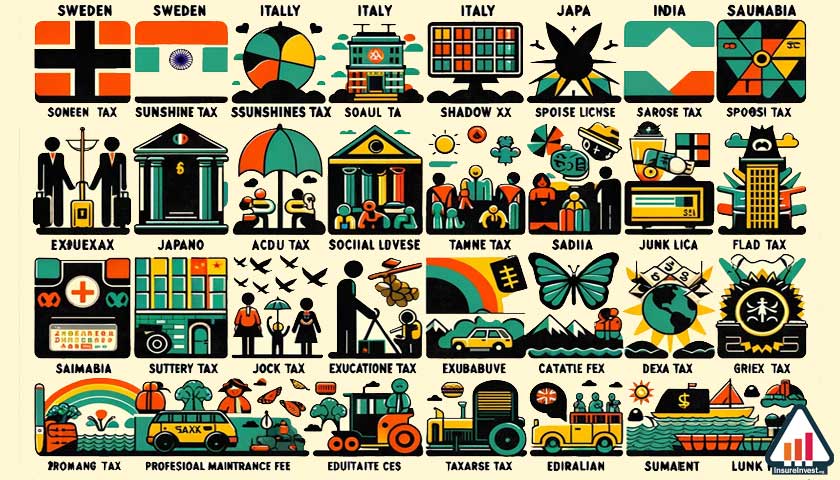What is TAX and countries for TAX
Tax is a compulsory financial charge or levy imposed by the government on individuals, businesses, or other entities to fund public expenditures and services. It is a way for the government to generate revenue that is used to finance various public goods and services, such as infrastructure development, healthcare, education, defense, and social welfare programs.
Taxation is a fundamental aspect of a country’s fiscal policy and is typically enforced by legislation. Governments at different levels, such as national, state, and local, may impose taxes on different aspects of economic activity, including income, profits, sales, property, and imports.
There are various types of taxes, including:
Income Tax: A tax levied on individuals and businesses based on their income or profits. It can be progressive, where the tax rate increases as income increases, or proportional/flat, where the tax rate remains the same regardless of income.
Sales Tax: A tax imposed on the sale of goods and services. It is usually a percentage of the purchase price and is collected by the seller at the point of sale.
Property Tax: A tax on the value of real estate property, including land, buildings, and sometimes personal property. It is typically levied by local governments to fund local services.
Corporate Tax: A tax on the profits earned by corporations or businesses. The tax rate can vary depending on the jurisdiction and the level of profits.
Value Added Tax (VAT) or Goods and Services Tax (GST): A tax on the value added at each stage of production and distribution of goods and services. It is often used by many countries as a broad-based consumption tax.
Excise Tax: A tax on specific goods, such as tobacco, alcohol, gasoline, and luxury items. Excise taxes are often used to discourage the consumption of certain products or to raise revenue for specific purposes.
Tax revenues are an important source of income for governments and play a crucial role in funding public infrastructure, social welfare programs, and public services that benefit the population as a whole. The specific tax laws and rates vary from country to country, and they are typically administered by tax authorities responsible for collecting and enforcing tax regulations.
The concept of the “best” tax countries can vary depending on individual preferences, goals, and circumstances. Different countries have different tax systems and structures, and what may be advantageous for one person or business might not be the same for another. However, there are a few countries that are often considered attractive in terms of their tax policies and overall tax environment. Here are some examples:
United Arab Emirates (UAE): The UAE is known for its tax-free environment, with no personal income tax or capital gains tax. However, there are taxes on certain activities like corporate profits in specific industries.
Singapore: Singapore offers a competitive tax system with relatively low personal and corporate tax rates. The country also provides various tax incentives and exemptions for specific industries and activities.
Switzerland: Switzerland has a decentralized tax system, and tax rates can vary between cantons. Overall, it offers a relatively low corporate tax rate and provides favorable tax treatment for holding companies and high-net-worth individuals.
Hong Kong: Hong Kong is recognized for its simple and low-tax regime. It has a flat and relatively low tax rate for both individuals and businesses. There is no capital gains tax, withholding tax on dividends, or value-added tax (VAT).
Ireland: Ireland has attracted many multinational corporations due to its low corporate tax rate. The country offers favorable tax policies for research and development (R&D) activities and has a competitive intellectual property tax regime.
Cyprus: Cyprus has a favorable tax system with low corporate tax rates, and it offers several tax incentives and exemptions. The country is known for its attractive tax regime for holding companies and intellectual property.
It’s important to note that while these countries may offer advantageous tax environments, there are other factors to consider when evaluating the overall attractiveness of a jurisdiction, such as the business environment, political stability, infrastructure, and quality of life.
Additionally, tax laws and regulations can change over time, so it’s essential to consult with tax professionals or advisors who can provide up-to-date and tailored advice based on your specific circumstances and objectives.




